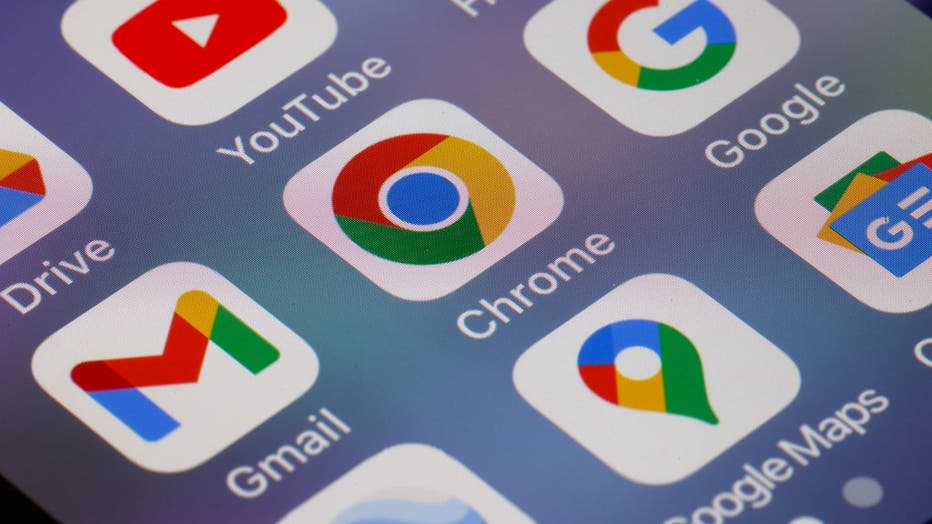Google’s online ad business found to be an illegal monopoly by federal judge
Google loses lawsuit over search engine dominance
Phil Alberstat, Managing Director of Embarc, joins LiveNOW's Austin Westfall to discuss the latest in some legal battles involving Google.
LOS ANGELES - For the second time in less than a year, a federal judge has ruled that Google broke antitrust laws—this time for monopolizing the digital advertising market.
U.S. District Judge Leonie Brinkema’s decision, issued Thursday in Virginia, found that Google illegally tied together parts of its sprawling ad tech business to dominate how online ads are bought and sold. The ruling is a major win for the U.S. Department of Justice and marks a potential turning point in the government’s efforts to rein in Big Tech’s market power.
Why the court says Google’s ad business is illegal
The backstory:
Brinkema’s 115-page decision concluded that Google abused its power in two key areas of digital advertising: the technology that helps publishers sell ad space and the tools used to run real-time ad auctions.
"For over a decade, Google has tied its publisher ad server and ad exchange together through contractual policies and technological integration, which enabled the company to establish and protect its monopoly power in these two markets," Brinkema wrote. "Google further entrenched its monopoly power by imposing anticompetitive policies on its customers and eliminating desirable product features."
Though the court found Google’s behavior illegal, it did not conclude that the company’s acquisitions—such as its 2008 purchase of DoubleClick or its follow-up deal for Admeld—were themselves anticompetitive.
"Although these acquisitions helped Google gain monopoly power in two adjacent ad tech markets, they are insufficient, when viewed in isolation, to prove that Google acquired or maintained this monopoly power through exclusionary practices," Brinkema wrote.
What happens next in the case
What's next:
The case now moves into a penalty phase, expected to begin later this year or early 2026. The Justice Department is likely to push for structural changes, potentially including forcing Google to sell off parts of its ad tech business—specifically, the Ad Manager platform and ad exchange.
The ruling also adds pressure to the search monopoly case, decided last August, which moves into its own remedy hearings next week. In that case, DOJ lawyers are seeking to force Google to divest its Chrome browser.
How Google is responding
What they're saying:
In a statement, Google said it will appeal the ruling.
"We disagree with the Court’s decision regarding our publisher tools," said Lee-Anne Mulholland, Google’s vice president of regulatory affairs. "Publishers have many options and they choose Google because our ad tech tools are simple, affordable and effective."

FILE - In this photo illustration, Google app logos, Drive, YouTube, Gmail, Chrome, Google and Google Maps are displayed on the screen of an iPhone. (Photo illustration by Chesnot/Getty Images)
Meanwhile, U.S. Attorney General Pamela Bondi called the ruling "a landmark victory in the ongoing fight to stop Google from monopolizing the digital public square."
How the ruling impacts publishers and advertisers
Why you should care:
During the trial, DOJ lawyers emphasized that Google’s practices harmed online publishers—especially news organizations that rely on advertising revenue to stay afloat.
Witnesses from Gannett, which publishes USA Today, and News Corp., which owns The Wall Street Journal, testified about a lack of meaningful alternatives to Google’s ad systems and the difficulty of operating in a market dominated by one provider.
Analysts had predicted the ruling could go against Google, and investors appeared unfazed. Shares of Alphabet, Google’s parent company, closed down 1% Thursday at $151.22. However, the company’s stock has dropped 20% this year.
Google’s broader antitrust challenges
Big picture view:
This marks the third major antitrust case Google is now fighting. In addition to the ad tech and search rulings, a 2023 jury found that its Play Store was also an illegal monopoly.
Google’s lawyers have argued that these cases misrepresent the current market landscape, which they say includes strong competition from Meta, Amazon, Microsoft, and Comcast.
During the ad tech trial, Google attorney Karen Dunn described the government’s case as outdated. "A time capsule with a BlackBerry, an iPod and a Blockbuster video card," she said in her opening statement last fall.
The Source: This article is based on reporting from the Associated Press, including a story written by Michael Liedtke and published on April 17, 2025. The AP report includes direct quotes from court documents, Justice Department officials, Google representatives, and trial witnesses.

